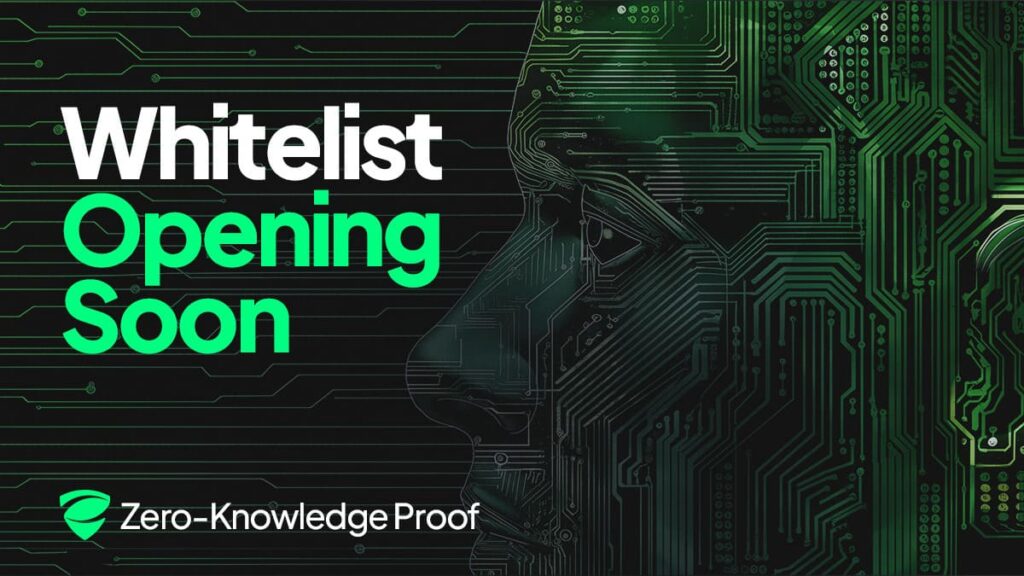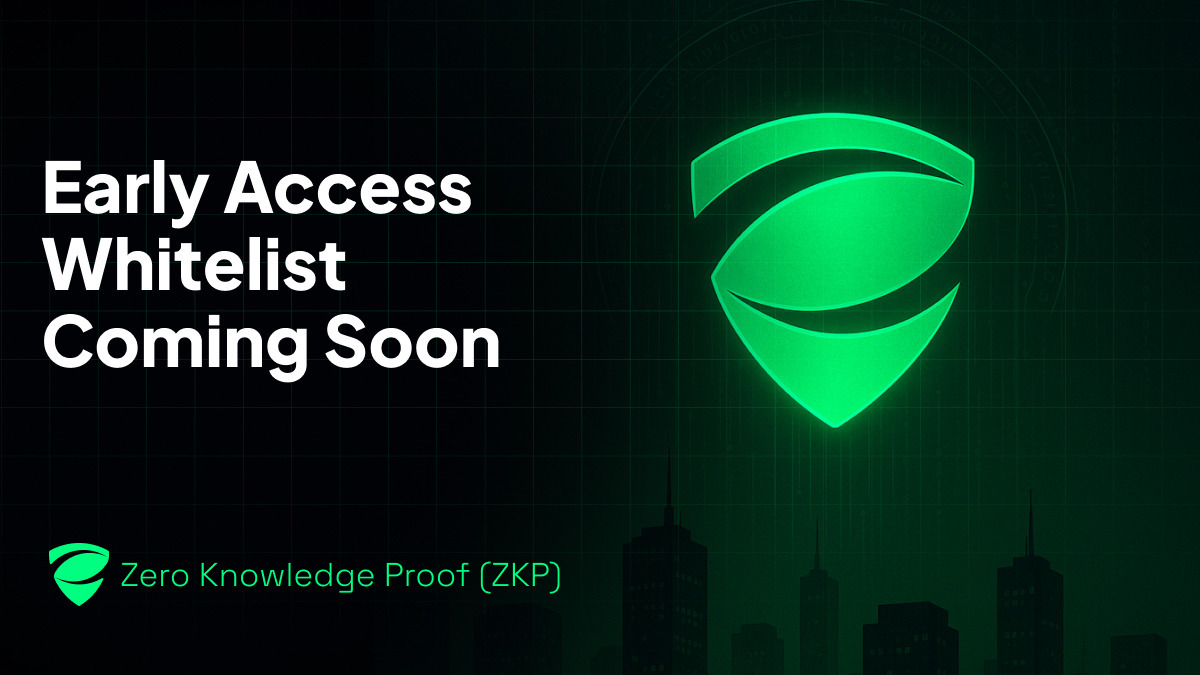For more than a decade, blockchain has been celebrated for its transparency, a feature that built confidence but also exposed a major flaw. Total visibility simply doesn’t work in a world where privacy is essential. Real trust isn’t about putting everything in public view; it’s about proving what’s true without revealing what’s private. That’s the breakthrough introduced by Zero Knowledge Proof (ZKP).
By reimagining blockchain as a “trust system with built-in privacy,” it makes decentralized technology suitable for real-world use. This shift isn’t just technical; it’s philosophical. Zero Knowledge Proof (ZKP) shows that transparency and confidentiality can coexist, building a digital environment where trust is verified, not exposed. The whitelist will soon open for early presale access to this vision.
The Limitations of Transparency
The early blockchain vision, total transparency, was revolutionary but incomplete. While open ledgers built confidence in data accuracy, they also exposed sensitive details. Businesses, governments, and individuals quickly realized that a fully transparent system couldn’t handle private contracts, confidential transactions, or regulated industries.
Key limitations of traditional transparency include:
- Data exposure: Public visibility of all transactions compromises user confidentiality.
- Business risks: Companies can’t protect trade secrets or client data on open ledgers.
- Limited adoption: Privacy concerns slow mainstream acceptance.
These flaws make traditional blockchains unsuitable for the majority of real-world use cases. Trust doesn’t always require visibility; it requires verifiability. Zero Knowledge Proof (ZKP) introduces a model where both coexist. By proving authenticity without revealing data, it transforms blockchain from a surveillance-style record into a privacy-first trust system.
ZKP Redefines Trust Through Privacy
Zero Knowledge Proof (ZKP) introduces a simple but powerful shift: privacy as the backbone of digital trust. Instead of broadcasting every transaction, it uses advanced cryptography, zk-SNARKs and zk-STARKs, to prove validity without exposing the data behind it.
In this new framework, trust is created through math, not exposure.
- Users: Can prove identity or ownership without revealing personal information.
- Enterprises: Can comply with regulations while protecting internal data.
- Institutions: Can verify audits or solvency without full transparency.
This redefinition is more than technical; it’s philosophical. It moves blockchain from “trust through openness” to “trust through cryptographic certainty.” With Zero Knowledge Proof (ZKP), privacy doesn’t erode trust; it enforces it. This evolution opens the door for sectors like healthcare, banking, and governance, where discretion and trust must work together.
ZKP’s Real-World Applications of Private Trust
The impact of Zero Knowledge Proof (ZKP) extends far beyond cryptocurrency. Its privacy-preserving framework is suited for industries that handle sensitive information daily. The applications demonstrate how digital trust can operate without compromise.
Examples include:
- Finance: Institutions can validate transactions without revealing balance sheets.
- Healthcare: Patients can verify medical data without disclosing full records.
- Voting systems: Identities stay private while ensuring vote integrity.
- Supply chains: Authenticity is verified without exposing trade partners or quantities.
Each of these use cases proves a single point: privacy and accountability can coexist. Zero Knowledge Proof (ZKP) doesn’t just protect data; it unlocks opportunities that previous blockchains couldn’t. By aligning cryptographic trust with practical utility, ZKP blockchain creates a system ready for real-world integration, not theoretical debate.
Whitelist Opens Soon: Joining the Privacy Revolution
The whitelist to join Zero Knowledge Proof (ZKP) is opening soon, offering early presale access to those who believe privacy is not an option; it’s the foundation of the next digital era. This opportunity isn’t about short-term gains but long-term transformation.
Whitelist participation offers:
- Early access to a project redefining blockchain’s role in digital trust.
- Alignment with a privacy-first framework designed for global industries.
- Entry-level positioning before institutional and enterprise adoption accelerates.
Being part of this phase means joining a shift in how data, ownership, and identity will be protected in decentralized systems. The whitelist marks the beginning of a new chapter, where Zero Knowledge Proof (ZKP) builds the infrastructure for privacy-driven trust in every sector that values security and discretion.
Summing Up
The blockchain story is entering a new phase, one where privacy and trust are inseparable. Zero Knowledge Proof (ZKP) leads this transformation by proving that transparency doesn’t need to mean exposure. It introduces a smarter form of trust, grounded in verification and protected by cryptography.
This evolution turns blockchain into something more than a ledger; it becomes a secure, reliable foundation for digital life. The whitelist, opening soon, offers presale access to a project built around this principle. Joining it means more than early participation; it’s a chance to align with the movement reshaping how trust works online. Zero Knowledge Proof (ZKP) is not hiding information. It’s protecting truth in a privacy-first world.
This article contains information about a cryptocurrency presale. Crypto Economy is not associated with the project. As with any initiative within the crypto ecosystem, we encourage users to do their own research before participating, carefully considering both the potential and the risks involved. This content is for informational purposes only and does not constitute investment advice.





